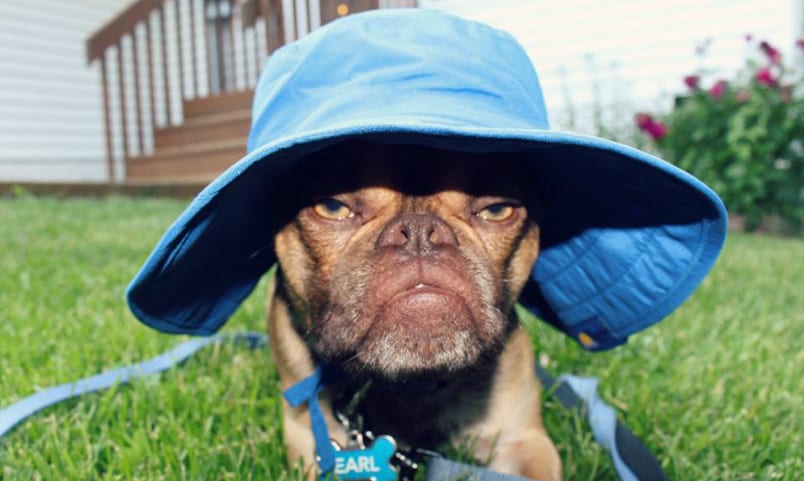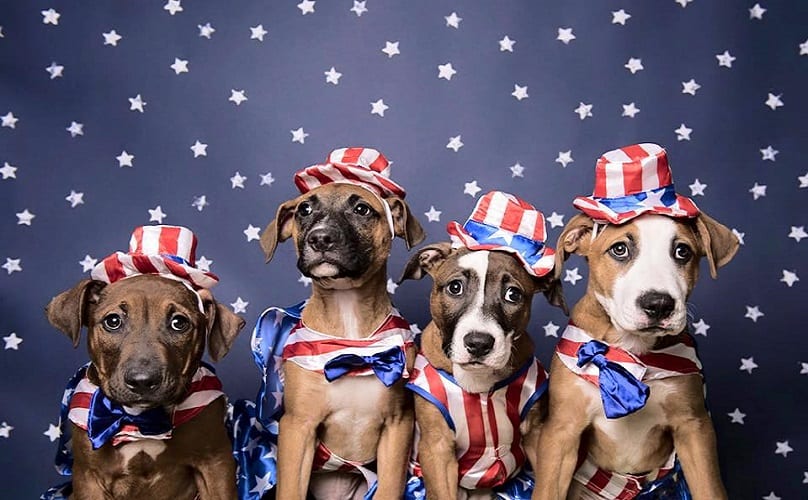America is the land of opportunity. It’s a place where, no matter who you are or where you come from, you deserve a second chance — no questions asked. We often hear presidential hopefuls explain how they’ll work to perpetuate the American Dream if elected. The inevitable reply from global citizens and Americans alike is: “How?” Celebrating second chances is one thing, but actually doing what it takes to ensure they are available is another. Having the next President of the United States adopt a shelter dog would send a powerful and meaningful message that we not only value our animals, but that we are a nation who doesn’t just talk about second chances, we give them.
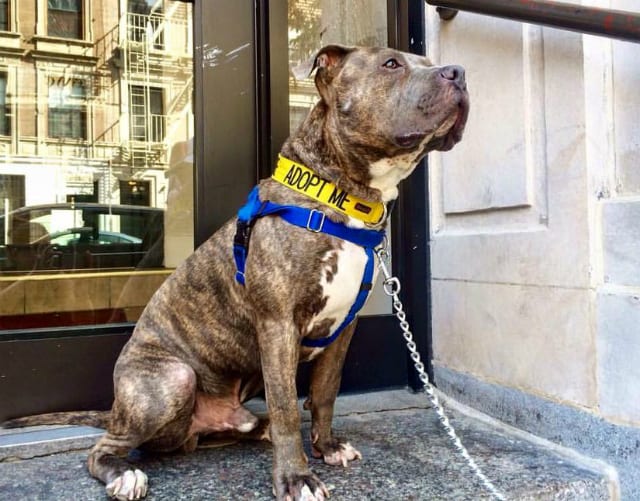

Some may say that one dog’s adoption wouldn’t be more than a drop in the ocean, but seem to forget that some of us are capable of creating waves with even the smallest of actions. Eli Frank, Co-Founder and Director of Mr. Bones and Co., a non-profit supporting animal rescue and advocacy, explains how the next president’s choice to adopt would affect animal homelessness nationwide:
The impact would be incredible. This notion of leading by example would have widespread, positive ramifications, encouraging Americans to be more open-minded when it comes to adding a furry family member… A president who adopts a dog rather than purchasing [would let] the American public know that if a rescue dog is good enough for the White House, it’s good enough for YOUR house!
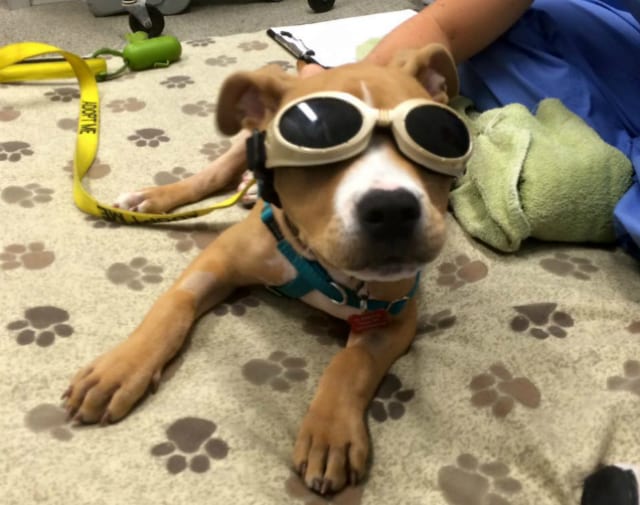

According to the ASPCA, there are about 75 million dogs and 85 million cats owned in the United States. Approximately 37-47% of all households in the United States have a dog, and 30-37% have a cat. While it’s unclear what percentage of those animals were rescued rather than purchased through a breeder or pet store, it shows that the “animal issue” — whether they’re mixed or purebred — is one that is relevant to the majority of Americans.
While many presidents have had purebred dogs in the White House, adopting a shelter dog goes beyond breed. In fact, the results from a sample study of U.S. Animal Shelters concluded that about 70% of animals found in shelters are mutts and 30% are purebred. The unifying factor is always that there are people willing to bring them into their homes and give them the life they deserve no matter their background. Shelter dogs, young or old, purebred or mixed, are often in dire need for people to take them in as they are all homeless, and many, regardless of their pedigree, are at risk for euthanasia.
The same ASPCA study states roughly 7.6 million companion animals enter the shelter system each year. About 35% of those animals are euthanized annually. The Coalition for Pets & Public Safety states that U.S. taxpayers pay an estimated $2 billion each year to round up, house, euthanize, and dispose of homeless animals. Whether you’re able to take in a pet or not, housing America’s homeless animals is an issue that affects us all. Encouraging those with high visibility to use their platform to increase awareness about adoption would not only have positive financial implications, but it would also give a powerful voice to those who cannot speak for themselves.
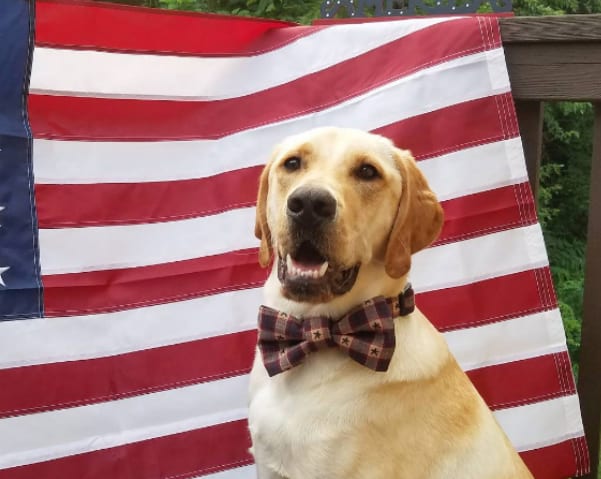

Having a pet in the White House is tradition — only one president in our country’s entire history didn’t have one … and let’s just say he’s not making it on a dollar bill any time soon (unlike George Washington who had seven pups during his White House stay). If the next president of the United States were to adopt a shelter dog, it would be a small way to make a huge impact on a sad, and largely avoidable problem. It would send a message to all Americans regardless of their political affiliation that we are a country that practices what we preach when it comes to second chances.
While adopting a pet shouldn’t necessarily be our next president’s top priority, it is an issue that should be top of mind. Top Dog 2016 is a campaign that, alongside several animal rescue group partners (including Mr. Bones and Co.) is encouraging candidates and citizens alike to make a written commitment addressing animal homelessness. Marco Greenberg of the Top Dog 2016 campaign explains, “Animal homelessness is a widespread epidemic that can and should be addressed on a national level. Even taking the steps to address the problem on a local or gubernatorial level can have a huge impact on the lives of countless animals.” To encourage your local government officials (or even preferred presidential candidate) to choose adoption as their best option, request that they sign the Top Dog 2016 Pledge.
[bp_related_article]
It is without question that our next president is in a unique position to adopt, both in terms of his or her ability to promote the practice and resources to care for the animal. Though many Americans may feel ready to take on the responsibility of a pet, they may also worry about the risks associated with adopting a dog with an unknown past. Breeders often know the lineage of their pups whereas shelters rely on information from personality assessments, medical exams and in some cases, previous owners. Regardless of a dog’s history, there is an underlying trait they all share: loyalty.
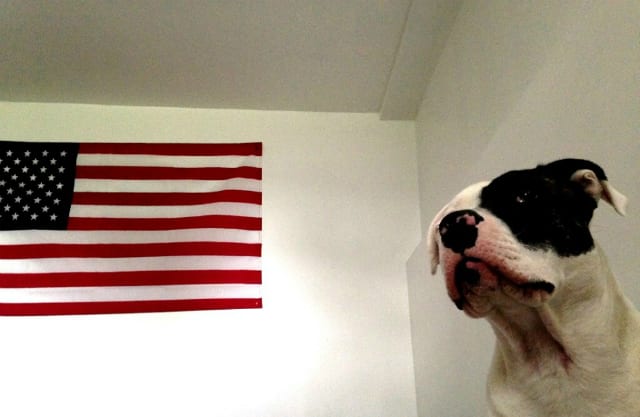

Eli Frank explains how a dog’s loyalty and a human’s ability to earn their trust is often what’s most important in the end: “A dog raised in a neglectful or abused home can absolutely be rehabilitated. With time, compassion and consistency, a stable home and kind environment can enable a dog to flourish. Oftentimes, the effect of a stable environment and care can be seen almost immediately. It is incredibly important to note that an unknown past does in no way mean a dog will have issues. In fact, the vast majority of them do not have serious issues. Dogs are loyal by nature. An unknown past does not negate the loyalty a dog can bestow on their new owner(s).”
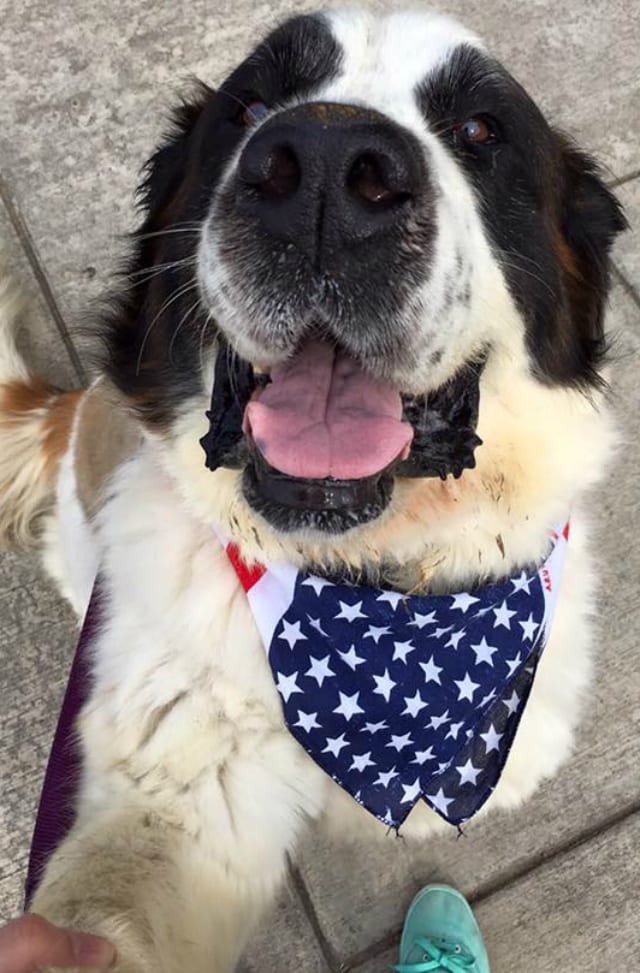

Whether they’ve been left behind, mistreated or even abused, so many dogs that come from shelters are willing, against all odds, to put their trust back in those who hurt them: humans. And, if they’re lucky, some of the dogs get a chance at a whole new life filled with happiness and love because of their ability to try.
Unfortunately, not all dogs are given the opportunity to try again – a difficult and entirely avoidable truth that could be addressed with a powerful ally. Our next POTUS will most likely follow tradition and take in a dog after moving to 1600 Pennsylvania Avenue. He or she can and should use the opportunity to set a national standard for compassion.
Whether or not you’re in a position to adopt, you can make a difference to help save animals lives: Encourage elected officials to sign the Top Dog Pledge, use your network to spread the word about animals up for adoption, or even reach out to your preferred presidential candidate and ask that they make adoption their first option.
It’s time for a shelter dog in the White House, and if Americans make it clear it’s something we care about, together we can influence the most powerful person on earth to make it happen.
Featured image via Mr. Bones & Co./Sophie Gamand



